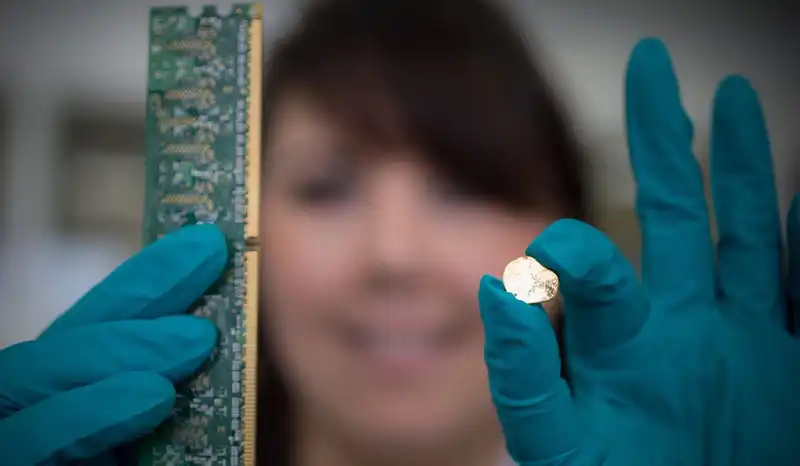The Royal Mint, known for producing the nation's coins, has begun a new task. It is to extract gold from e-waste. The company has built a new industrial site to "mine" gold from discarded electronics. According to the Royal Mint, the gold will first be used in jewelry and eventually turned into commemorative coins (via BBC).
The big question, of course, is how much gold is contained in old motherboards, toaster circuits, and televisions. The Royal Mint estimates that 450 kg can be recovered from 4,000 tons of e-waste.
At current prices, this equates to $35 million. So you can see why the Royal Mint is undertaking this project.
Also, this is equivalent to 1/8,000th of the gold in e-waste. When you think about it, that is a significant amount. Considering the enormous amount of e-waste generated globally each year, this is certainly a lot of gold.
Most estimates put the amount at about 50 million tons. There is no doubt that the Royal Mint selects e-waste for its relatively high gold content. Therefore, it is very likely that the 50 million tons per year figure does not represent the Royal Mint's recovery rate of 6,250 tons of gold in e-waste. The world's annual gold production is only half that amount.
But still, it makes one wonder how much gold is sent to landfills or sits in scrap yards. [Of course, recovering gold is not a straightforward process. Traditionally, extracting gold from e-waste has meant a trade-off with the environment. However, the Royal Mint claims to have largely solved this particular problem.
"Traditional gold recovery processes are either very energy intensive and use very toxic chemicals that can only be used once, or they are taken to high-energy smelters and essentially incinerated," says Leighton John, operations director at the Royal Mint.
"What is revolutionary for us is the fact that this chemical is used at room temperature, at very low energy, is recyclable, and can extract gold really quickly," he says.
Frankly, it also gives the Royal Mint something to do in an era of ubiquitous digital and contactless payment systems, where cash usage is rapidly declining. We don't need as many coins as we used to.
In the future, the Royal Mint is considering whether it is worth recovering other metals, including aluminum, copper, tin, and steel. They are also considering using the crushed motherboards as building material.
Now here's an interesting thought: how much gold is in your PC? It may be a little more than you think, but you might still prefer to fire up "Baldur's Gate 3" rather than smelting it for cold hard cash.


Comments